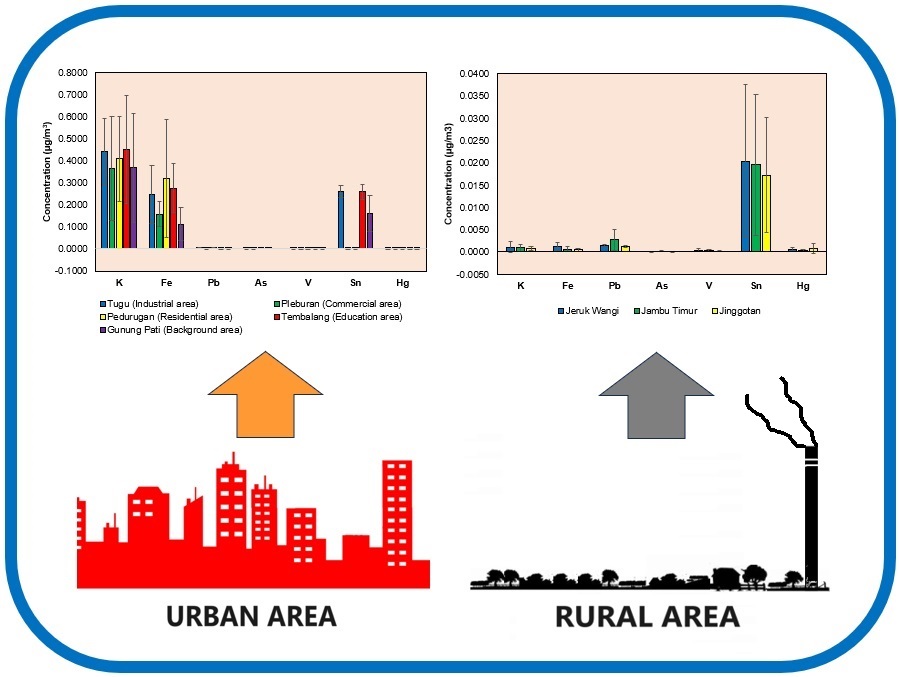
Air pollution in coastal areas will have a different pattern from mountainous areas due to different wind patterns during the day and night. The city of Semarang, as a representation of urban areas, and Jepara Regency, as a representation of the rural regions, were chosen for this sampling. 24-h fine particulate matter (PM2.5) was collected within 3 months of sampling. In this study, seven metal elements derived from this PM2.5 were quantified using ICP MS. The analytical method used is a descriptive analysis of the obtained metal element data, enrichment factor (EF), Hybrid Single-Particle Lagrangian Integrated Trajectory (HYSPLIT) modeling and sources pollutant estimation. The results of the study showed that the stannum (Sn) metal was found in almost all study locations. Sn, K, and Fe are the dominant metals found in urban areas, whereas, in rural areas, only the Sn metal is quite abundant. Nevertheless, the results of EF calculations show that the most significant enrichment in both villages and cities is Sn. Allegedly, this enrichment occurred because of dense activity in the transportation sector and metal industry in urban areas, which brought metals to three villages in Jepara Regency. This research can be used as the main reference in determining health risks associated with metal pollution in atmospheric particulate matter.
Total file downloads: 17